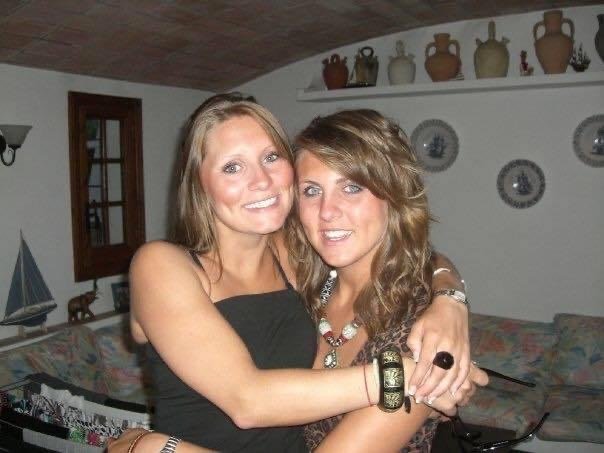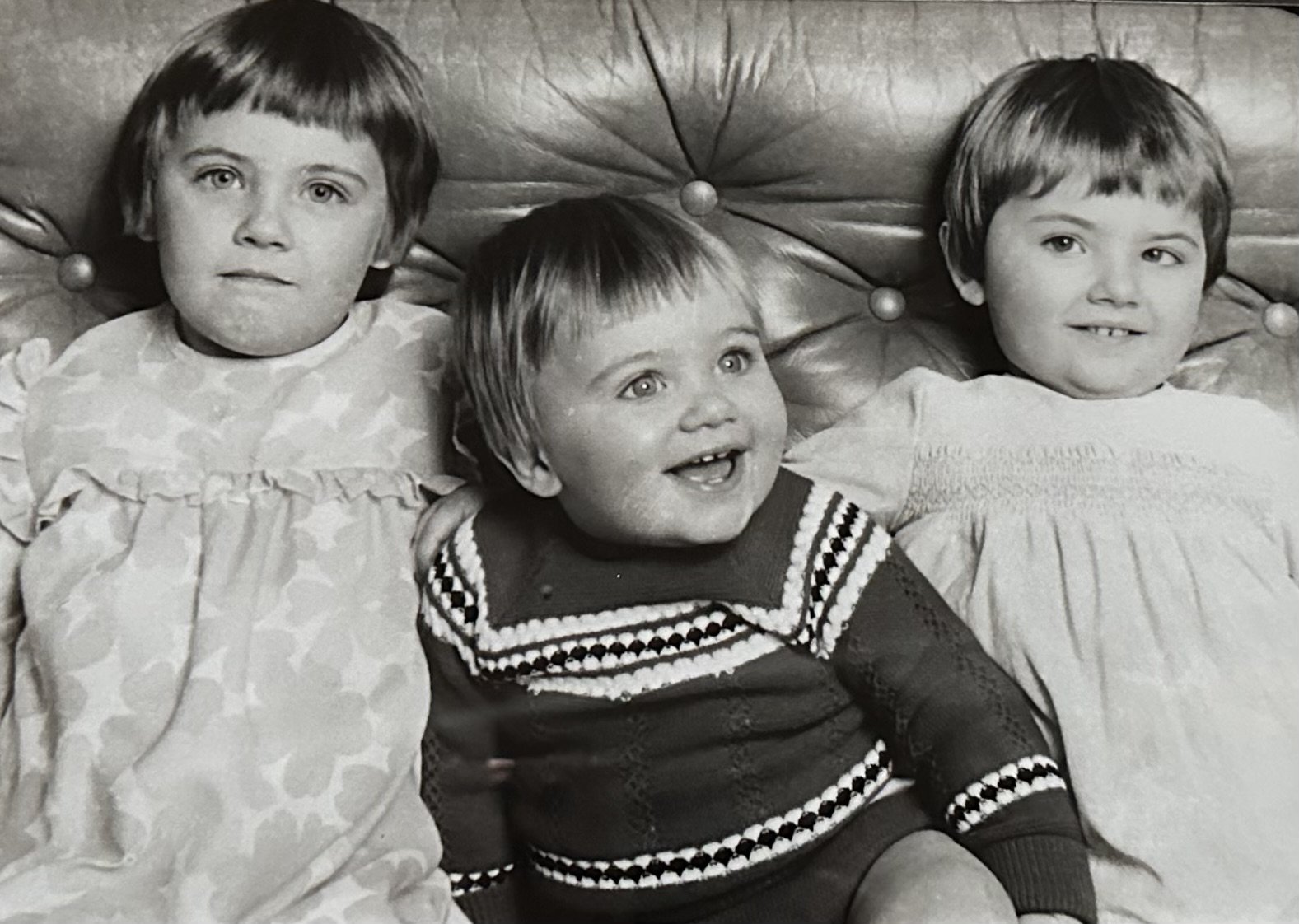Fiona’s story
Fiona & Natalie
Fiona speaks about her sister’s sudden death and the five things that helped her cope.
I am sure many of you can understand this when I say that my sister wasn’t just my sister, she was my best friend.
And as the middle child, she seemed to be the backbone of the family, the ‘go-between,’ the mischievous 2nd born and the supportive older sibling.
She was always at the top of my ‘recently called’ list.
The first person I would phone just to have some company.
She was my driving instructor, my fake ID, my travel partner.
She stole my clothes, I stole hers.
We talked about life and how our future husbands had no choice but to be best friends.
But that future never happened.
“On 2nd December 2011, Natalie was at Greg James’ feet up Friday at Radio 1, when she suffered a brain haemorrhage, completely out of nowhere. She was 26.”
“Natalie is in intensive care.”
That one phone call marked a schism between my childhood and adulthood; any naïve innocence I held about life suddenly ripped out from underneath me.
“After 5 excruciating days in hospital, Natalie passed away. And as she did, so did a version of myself. Because death never just affects one person.”
Suddenly everything in life felt different. I wasn’t just trying to deal with the gaping void Natalie left in my life, but also trying to navigate the new perspective on life that I now held; nothing looked the same, what was once important now wasn’t. In a single moment, everything about life changed, I changed. I was 21, but suddenly I felt so different to all my friends, whilst they were living carefree lives, my life felt anything but.
In the first few years after her death, I dealt with my grief in a very traditionally British way, with utter stoicism, to just carry on. I never had any therapy in the first few years, I was barely able to speak to anyone about her death. Everything hurt; watching others move on with their lives with ease, seeing sisters together, watching happy families at Christmas, thinking ahead to life events that she won’t be at.
And whilst the grief felt heavy, a narrative of guilt made me not want to escape; “Why should I be happy? Why should I be able to move on with my life when Natalie couldn’t?”
And that blend of emotions is not only confusing, but heavy.
Initially keeping my head down allowed me to carry on, to finish university, to navigate those first few years, but the bottling up of grief soon caught up with me, limiting me in different aspects of my life, particularly relationships.
“In time I learnt that as difficult as facing the pain of losing a sibling is, it is vital to help you to move forward, to deal with the pain so that you can put down the weight; because the longer you carry that weight, the heavier it gets.”
So, let me share with you five things that helped me deal with the death of my sister which I hope can help you too. (Click the plus to expand the text)
-
The more we avoid the pain, the more it will simmer inside of us, limiting us, eventually manifesting in ways that negatively impact our lives. I found that as a culture, we can be scared of talking through our own difficult experiences, instead nullifying pain by distraction to avoid sitting in any discomfort.
And grief is uncomfortable.
But the reality is, that whilst those conversations will be difficult, they need to be had in order to move forward without the weight of grief pulling you down. When you talk through your pain you get an opportunity to process it and as you do you are able to put aside the heavy load and move forward with your own life.
Grief is a process that has no final destination, there is no timeline and there is certainly no right way to do it. But a great place to start is by talking about it.
I spent years sat in my own head but the more I have done through therapy, coaching, self-development courses, (and still do 12 years later) the more at peace with her death I become, the more I have been able to accept it and the less I have been triggered by it.
-
You have been through trauma, your body has been through trauma and it will be responding in such a way, look after it and as simple as it sounds really prioritise your self care. Right now, nothing else matters but you. If you don’t feel your best, everything else in your life will be negatively affected.
It doesn’t have to be complicated, start simply by focusing on getting enough quality sleep, moving your body, feeding your body properly, limiting alcohol intake and giving yourself time to clear your mind through meditation.
-
In the immediate aftermath of losing a loved one everything can feel completely pointless. It can be hard to get out of bed in the morning or commit to anything.
Try to find something that gives you a sense of purpose. In the beginning, that might look like simply going to a yoga class or meeting a friend for lunch. Over time, that could be starting a short course to expand one of your hobbies or organising a fundraising event in memory of them.
-
As much as it may feel like you are alone and no one around you truly understands your hurt and pain, you are not alone. Try to connect with others who have lived similar traumatic experiences, listen to how they dealt with things and lean on them when things get a bit too much.
Utilising this network can be so empowering to help you through this period and when you know that if they have gotten through it, so can you.
-
Trying to move forward with your own life can trigger feelings of guilt, as if by allowing yourself to no longer be sad and grieving means you are forgetting them and leaving them behind. But let’s make one thing abundantly clear, this is not true. They would not want you to be unhappy, they would want you to live your life to the fullest.
So, carry them forward, live your life in honour of them, celebrate them, speak about them, and ensure that they are a part of the amazing happy life you go on to live, not without them, but because of them.





